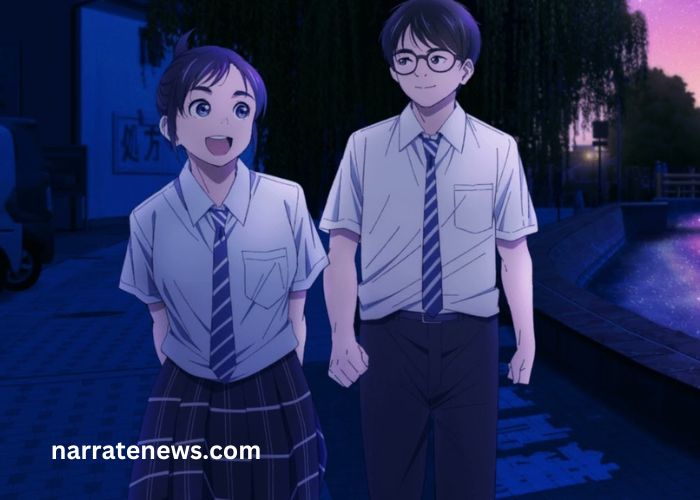
Kimi WA Houkago Insomnia
In the realm of Japanese literature and culture, the phrase “Kimi wa Houkago Insomnia” holds a certain mystique. Translated to “You Are After-School Insomnia” in English, this evocative expression not only captures the essence of sleeplessness but also hints at deeper themes of loneliness, introspection, and existential angst. In this article, we embark on a journey to explore the multifaceted nature of “Kimi wa Houkago Insomnia,” unraveling its significance in literature, music, and beyond.
Origins and Meaning
The phrase “Kimi wa Houkago Insomnia” originated in Japanese literature and has since become a poignant symbol of restless nights and restless hearts. Its literal translation, “You Are After-School Insomnia,” conjures images of empty classrooms bathed in the soft glow of twilight, where the quietude of evening amplifies the solitude of one’s thoughts.
At its core, “Kimi wa Houkago Insomnia” encapsulates the experience of being unable to sleep due to lingering thoughts of someone or something. It speaks to the ache of longing, the yearning for connection, and the bittersweet beauty of nocturnal introspection. Whether fueled by unrequited love, existential ponderings, or the weight of unspoken words, the insomnia of “Kimi wa Houkago” serves as a poignant metaphor for the human condition.
Literary Significance
In Japanese literature, “Kimi wa Houkago Insomnia” has been immortalized in works of poetry, fiction, and philosophy. Poets have woven its essence into verses that speak of loves lost and dreams deferred, while novelists have crafted narratives that delve into the depths of the human psyche. From the existential musings of Haruki Murakami to the romantic yearnings of Yoru Sumino, the theme of insomnia resonates deeply with readers, offering a window into the complexities of the human experience.
In literature, “Kimi wa Houkago Insomnia” often serves as a catalyst for introspection and self-discovery. Characters grappling with sleeplessness find themselves confronting their deepest fears, desires, and regrets in the silence of the night. Through their restless wanderings, they navigate the labyrinth of their own minds, seeking solace, understanding, or simply a moment of respite from the chaos of the world.
Cultural Impact
Beyond literature, “Kimi wa Houkago Insomnia” has permeated various facets of Japanese culture, from music and film to art and fashion. Musicians have penned songs that capture the mood of sleepless nights, while filmmakers have depicted the haunting beauty of insomnia on the silver screen. Artists have immortalized its essence in paintings and sculptures, while fashion designers have drawn inspiration from its melancholic allure.
In popular culture, “Kimi wa Houkago Insomnia” has become synonymous with the romanticization of late-night musings and moonlit reveries. It has inspired countless works of art, poetry, and music, each offering a unique interpretation of its themes and motifs. Whether portrayed as a curse to be endured or a blessing to be embraced, insomnia holds a special place in the collective imagination, serving as a reminder of the power of sleepless nights to shape our lives and our destinies.
Personal Reflections
For many individuals, “Kimi wa Houkago Insomnia” is more than just a literary trope or cultural symbol – it is a deeply personal experience. Countless people have lain awake at night, consumed by thoughts of love, loss, and longing. They have stared at the ceiling in the darkness, grappling with questions of purpose, identity, and belonging. In these moments of solitude, they have found solace, inspiration, and, perhaps, a glimmer of hope amidst the shadows.
In my own life, “Kimi wa Houkago Insomnia” has been a companion during some of my most vulnerable moments. It has been a silent witness to my fears, my doubts, and my deepest desires. It has offered me a sanctuary amidst the chaos of the world, a space where I can explore the recesses of my soul and confront the truths that lie within. Through the lens of insomnia, I have discovered strength in vulnerability, beauty in imperfection, and the transformative power of self-awareness.
Conclusion
In conclusion, “Kimi wa Houkago Insomnia” is more than just a phrase – it is a window into the human soul. It speaks to the universal experience of restlessness, yearning, and self-discovery that transcends cultural boundaries and linguistic barriers. Whether found in the pages of a novel, the lyrics of a song, or the brushstrokes of a painting, insomnia serves as a reminder of our shared humanity and the enduring power of the human spirit to find beauty, meaning, and connection amidst the darkness of the night.


